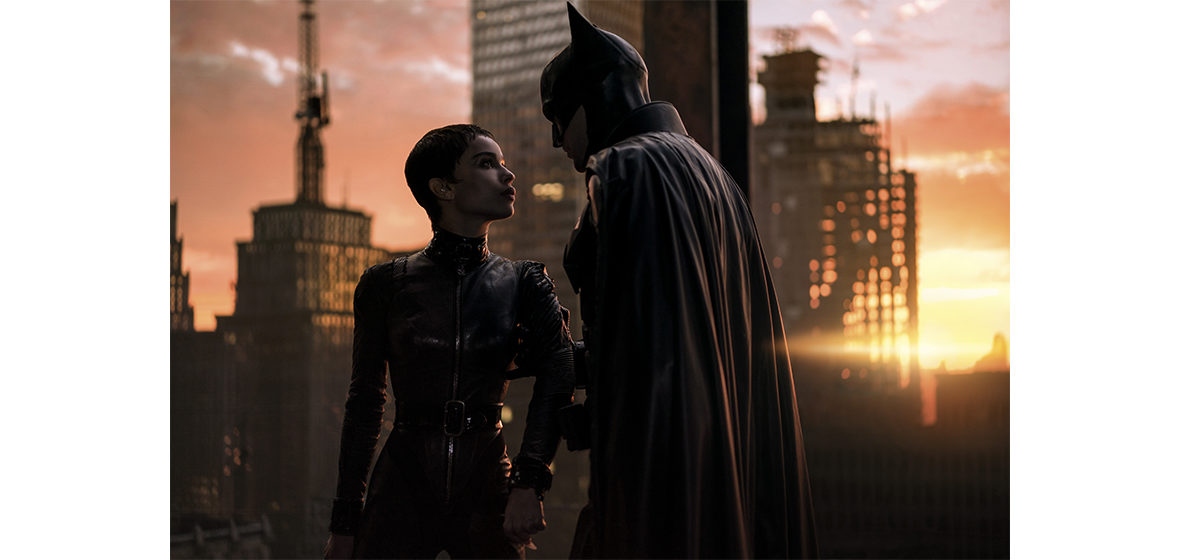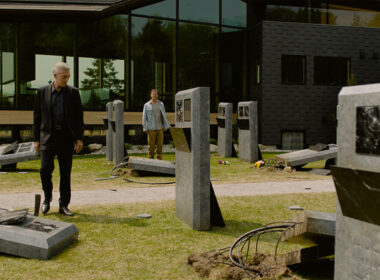Rating: ***
For all the obsession Marvel has for the continuity of its cinematic universe, it misses out on exploring the concepts of its characters. Because what started as stories for teenagers grew ingrained into pop culture, it can and should be recontextualised. Continuity brings uniformity, and uniformity begets boredom.
Take Batman, played by seven actors and adapted by six filmmakers. The only common thread between all the interactions is the surface fundamentals of the character – billionaire in Gotham city deals with the trauma of seeing his parents murdered by a small-time criminal by taking justice into his own hands. Tim Burton saw in him a post-war American symbol to save the 90s from its urban decay and lawlessness and Snyder had him fight for God-like status within the constraints of his mortality. Inarguably the most successful and acclaimed adaptation, Nolan revelled in the neoliberal idea of the billionaire who will save us against big government corruption. They are all philosophically different and, above all, not so much of a product of the times, but a personal conduit of the artists’ re-interpreting.
This time the task lands on Matt Reeves, by all accounts a solid filmmaker with a respectable filmography of mature blockbusters. Cloverfield deserves a revisionist look untampered by the marketing campaign. I thought his remake of the child-vampire movie Let The Right One In more exciting and subverting than the original Swedish film. The two films he made for the last Planet of the Apes trilogy were some of the most sobering blockbusters produced this century. Why not see what he has to say about Bruce Wayne and his alter-ego?
Reeves decides, correctly, to turn The Batman into a detective noir story where Bruce Wayne (Robert Pattinson) is not the hero of Gotham but a dark shadow that looms over the violent tapestry of the city. Its citizens don’t seem to know him, the police don’t respect him, and only his trusted Alfred (Andy Serkis) gives him a helping hand and a listening ear. The sudden murder of a series of important city officials and politicians introduces the threat of The Riddler (Paul Dano), who, like the Batman, is cleansing the city in its own way – by murdering the corrupt officials whose involvement with the local mobster kingpins – Penguin (an unrecognisable Colin Farrell) and Carmine Falcone (John Turturro) – make part of the larger scale of Gotham’s crime. While Batman stops petty crooks, The Riddler goes after the root of the problem.
This is a dramatic problem that eludes Wayne, still enveloped in the brooding cloud of the traumatic murder of his parents. He is a recluse, far removed from the playboy debonair of the previous versions. His whole operation is DIY, like something only one man and his butler could produce. The car is a gorgeous spruced up Dodge Charger that roars menacingly. Nothing about this Batman is subtle.
After being portrayed like the great liberators in Nolan’s adaption, the police force here is shown as flawed, corrupt, and power-hungry. Every time Reeves shows a group of officers running towards a crime scene, he uses the sound that can almost be described as “confused dogs barking at a pigeon”, a wild pack of animals with all bark but no bite. The exception is, of course, Commissioner Gordon (Jeffrey Wright), who contrasts with the other ally from the underworld side – Selina Kyle / Catwoman (Zoë Kravitz). It’s between this, again very unsubtle, spectrum of goodness Batman lingers, a confused man unsure if it’s worth protecting a system working so hard to self-destruct.
Reeves makes a Batman that reflects our society’s paranoia in this post Occupy, post Black Lives Matter, and post alt-right era. Inspired by David Fincher’s Seven, he builds everything like a convoluted noir, populating its three-hour run with so much plot it can only confuse you. For me, it works wonderfully, but I can see why others could be exhausted by this choice. The action is fierce and brutal, primal and unchoreographed. The one car chase has this continuous animalistic rumble you can feel in your gut. Batman himself is shot like a horror creature, attacking from the shadows like an alien xenomorph. The grey moral areas are accentuated. The concept works; it pumps you up, like a grim balm, to the current trend of sarcastic happy-go-lucky superheroes.
But why only three stars? For all of Reeves’ choices, the execution falters. First, the idea of noir cinematography with heightened contrasts and shadows is let down by not going hard enough on its stylised choice. Instead of dark, it’s dim, and only works when the one light source is evident: like the few times we see the sun or a particularly striking shot of a flare. Reeves and his writing partner Peter Craig recognise it’s easy for Bruce Wayne to be the purveyor of justice if he has never been wronged by the system that has always protected him. But they never have Wayne face his own privilege, so the idea is lost on him. The irony is that a film highlighting “The” in its title has almost nothing to do with Batman’s personal journey.
This stems from Reeves and Craig’s shortcomings. Nolan’s Batman had various degrees of quality but was carefully written with beautiful flashes of poetry. Twice Reeves and Craig promise an important monologue – and twice they fail to add even a blink of gravitas.
The Batman ends much like this review: a lengthy conceptual blockbuster whose ideas and intentions work better than the final result. But at least it’s not dull; after all, half of good art comes from good intentions.




